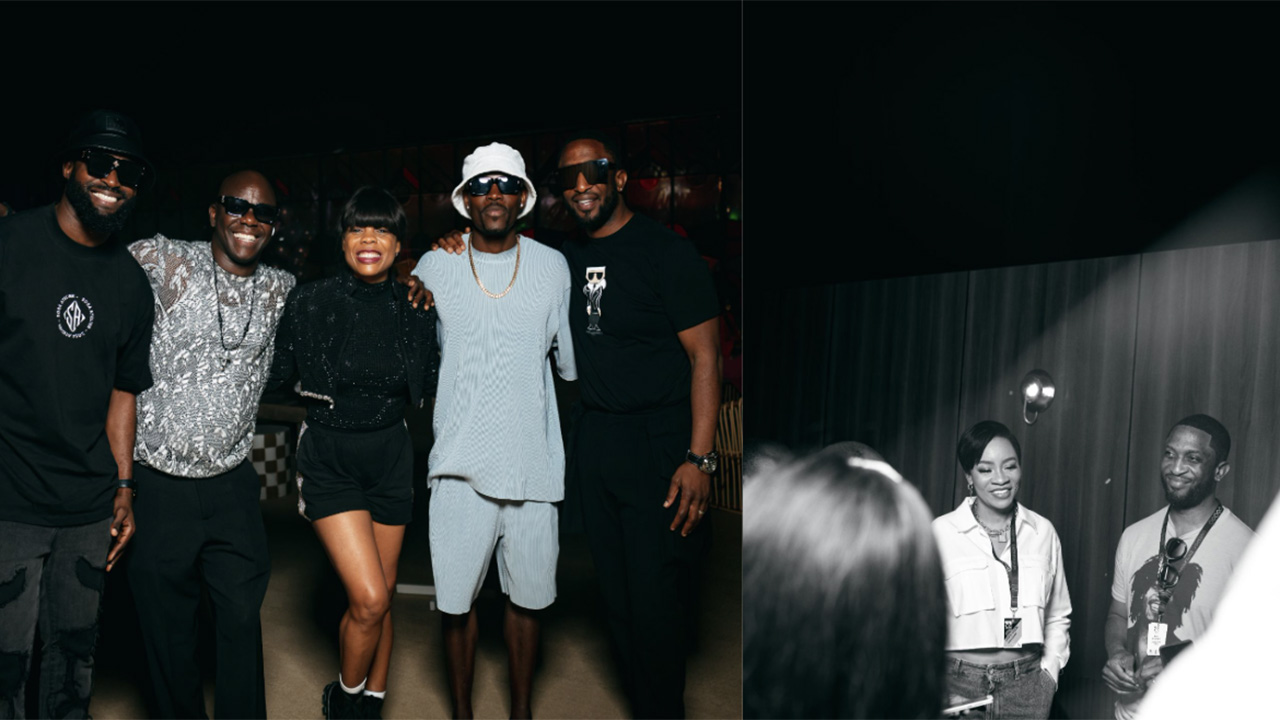
When the African entertainment industry began to conceive its agenda for wider appeal many decades ago, a major worry among stakeholders was how to effectively utilise collaborations within its ecosystem as well as with other industries for its benefit. Many factors, especially uncertainties around what a mutually beneficial alliance would look like, derailed ideas and thwarted efforts.
The sub-sectors (music, film, and comedy), lacking adequate financial backing and trusting only their ability to sell units to local households, played things safe by largely limiting collaborations within the space. And when the industry occasionally opened itself to partnerships outside of its bubble, it entailed the employment of its players to grace events arranged by other industries for paltry sums that barely translated to general growth. Industry heavyweights were merely contracted to sing the praises of influential personalities at local events, create jingles for brands, or entertain local audiences.
But right across the Atlantic, Africa’s global counterparts in the entertainment sector, enjoying what the continent lacked in access to resources, quickly found sweet spots in strategic collaborations.
One revolutionary alliance occurred by way of technology. Technology innovation and its adoption in the entertainment industry, Africa’s global counterparts figured, would transform the way entertainment is consumed globally, yield significant financial rewards for players in both sectors and ultimately, stimulate desired growth. This would spur the advent of music and video streaming services, digital media channels, and virtual realities dominating the entertainment world today.
While it has been left to play catch-up due to no major faults of its own, Africa’s entertainment industry, now far more confident in what its alliances are supposed to look like, is beginning to effectively transmit the power of collaborations within its space and with other industries to its advantage. Today, as envisioned by its stakeholders earlier in its journey, more calculated partnerships are forged by the industry with other sectors — local and international — and the growth has been evident.
The continent’s entertainment space currently enjoys global recognition and acclaim only previously imagined. Its musicians, filmmakers, comedians and other creatives have become some of the most sought-after professionals in the creative space in the world. For the first time in its rich, 54-year history, the Grammys has created the ‘Best African Music Performance’ category as a nod to the continent’s undisputable influential status. The MTV Video Music Awards has followed suit, creating a ‘Best Afrobeats’ category.
Data indicates this unprecedented rise in the industry’s global status is transmittable to general growth. Per projections, the continent’s entertainment industry’s market volume will reach $112.90 million by 2027, with an anticipated annual growth rate of 12.76% in total revenue between now and that time.
To sustain its global momentum and realize its booming potential, however, establishing more tactical collaborations and alliances that will address existing challenges in Africa’s entertainment landscape has never been more pivotal. A critical aspect is the need for increased support for the industry’s sub-sectors, enabling them to also compete on the global stage. Education and skill development represent another significant avenue for collaborations, as partnerships with established institutions to train talents are necessary for a continuous influx of skilled professionals into the industry.
In Nigeria, arguably Africa’s most established creative hub, one platform leading the conversation and showing how more deliberate collaborations within and outside the industry can inspire sustainable growth is Entertainment Week Lagos (EWL). Last year, during its maiden edition, the week-long event served as a conduit for industry stakeholders to collaborate, network, ideate, showcase and exchange knowledge and resources.
At the inaugural event, activities including workshops, exhibitions, and film hubs created avenues for entertainment industry enthusiasts to acquire valuable knowledge and insights on how to thrive in the current landscape. Award-winning dancer, Kaffy, was even in attendance to show aspiring dancers in the country the ropes, while music label Mavin used the event to celebrate its 10th anniversary with its artists.
The yearly festival organised by Livespot Foundation, a creative entertainment platform focused on the youth, has now set its sights on its second edition. And this time, it seeks to drive the importance and transformative power of strategic collaborations even further home.
“While the first edition was a success, we’re looking to take things a notch higher by enabling global and local exchange in the industry and push for policies that empower the entertainment community,” Deola Art Alade, co-founder/CEO, of Livespot360, stated at the time of announcement.
If its robust framework is anything to go by, when the curtains were ceremoniously drawn open on December 23, 2023, Africa’s entertainment industry got a deep look into what solutions and successes it can achieve through collaborations with the tech industry. There were qualitative exhibitions and workshops where entertainment and tech enthusiasts engaged in discussions on how technological innovation, including Artificial Intelligence (AI), inspire new growth metrics for the industry.
Discussions during the eight-day festival also focused on the empowerment of independent creatives, with rising talents in music, film, dance, art, comedy, and fashion presented with a unique opportunity to showcase their skills and learn from visionaries in the industry. Entertainment tech startups, too, enjoy access to mentorship and possible collaborations with investors.
As the world continues to open its arms invitingly to African creatives, these collaborative avenues created locally are beyond necessary to achieve a holistic and sustainable growth trajectory for the rapidly growing industry. They are crucial to magnifying Africa’s creative landscape’s potential, nurturing new local talents to global stardom, and attracting investments that will not only benefit the industry but significantly impact the continent’s economy.






